
All mystery writers have them—the cherished, often underappreciated, out-of-print books that we loved and that shaped us as writers. They are the books that made an impression on me in my teenage and college years and still feel new and vital to me today. They are the books that I talk about to friends, thrust into the hands of aspiring writers, and that I wish I’d written. They are the yellowed, forgotten paperbacks I keep buying out of pure devotion whenever I see them in used bookstores . . . even though I have more copies than I’ll ever need.
I’ve been at this long enough that many of my own books have fallen out of print, too. But I brought them back in new, self-published Kindle and paperback editions and, to my surprise and delight, they sold extremely well. It occurred to me that if I could do it for my books, why couldn’t I do the same thing for all those forgotten books that I love?
So, a little over a year ago, I started negotiating with the estate of an obscure author whose books I greatly admire but that never achieved the wide readership and acclaim that they deserved. I was in the midst of those talks when, at a Bouchercon in Albany, I told Joel Goldman, a good friend, mystery writer, lawyer, and a successful self-publisher of his own backlist, what I had in mind.
Joel got this funny look on his face and said, “That’s a business model. I really think we’re on to something.”
We?
It turned out that, like me, he’d been getting hit up constantly at the conference by author-friends who were desperate for his advice on how they could replicate his self-publishing success with their own out-of-print books . . . many of which had won wide acclaim and even the biggest awards in our genre. He’d been trying to think of a way he could help them out.
Now he thought he had the solution. What if we combined the two ideas? What if we republished the books that we’d loved for years as well as truly exceptional books that only recently fell out of print?
It sounded great to me. And at that moment, without any prior intent, we became publishers of what we considered to be the best crime novels in existence. It was a brash act . . . and that’s how, as naturally as we became publishers, we found our company name.
One of the first calls I made was to Tom Kakonis, whose books were a big influence on me, to ask if we could republish his out-of-print titles. His thrillers, including Michigan Roll and Criss Cross, achieved that perfect, delicate balance between drama and dark, almost outrageous humor, without going too far in either direction. It’s a skill that Elmore Leonard and Tom mastered, and that I’d hoped to some day be able to pull off myself. (I’m still trying.) I read Tom’s books the first time for pure pleasure but then again . . . and again . . . to see if I could discover how the magic was done.
In the mid 90s, I sold my first hardcover novel under my own name, My Gun Has Bullets, to St. Martin’s Press and went to a Bouchercon with a bunch of bound galleys in my bag. I spotted Tom there and nervously approached him for a blurb . . . and to my astonishment, he not only agreed to read my galley, but a few weeks later, he gave me a great review. Getting that blurb was almost as exciting for me as being published in the first place.
I’d never forgotten that experience. Or him. So naturally he was at the top of my call-list when we started this venture. And this time, he thrilled me again by saying yes to letting us republish his books. He also mentioned that he had a novel that he wrote some years ago, but had stuck in a drawer because he’d been so badly burned by the publishing business. I asked if I could read it . . . and he sent it to me. I was blown away by it and so was Joel. We couldn’t believe that a book this good, that was every bit as great as his most acclaimed work, had gone unpublished. It was a gift for us to be able to publish it. And that’s how, unintentionally, we decided to publish brand new books, too.
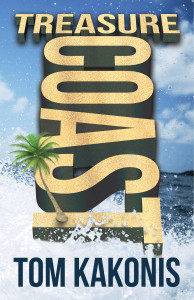 Tom’s unpublished novel, Treasure Coast, became our lead title when we launched in September 2014 with thirty books . . . from authors as diverse as Barbara Neely, Dick Lochte, Gar Anthony Haywood, Dallas Murphy, Maxine O’Callaghan, Bill Crider, and Jack Lynch, to name just a few. Now we’re on track to publish eight to ten novels each quarter, one or two of which will be brand new, never-before-published books.
Tom’s unpublished novel, Treasure Coast, became our lead title when we launched in September 2014 with thirty books . . . from authors as diverse as Barbara Neely, Dick Lochte, Gar Anthony Haywood, Dallas Murphy, Maxine O’Callaghan, Bill Crider, and Jack Lynch, to name just a few. Now we’re on track to publish eight to ten novels each quarter, one or two of which will be brand new, never-before-published books.
It’s a business that’s very much a labor of love for us both. We get a bigger thrill now out of seeing new copies of our authors’ books than we do our own. The widow of one of our authors got teary-eyed over Brash’s editions of his out-of-print books because we were treating them the way he’d always wanted. We got tears in our eyes, too. We started Brash Books for moments like that and for Tom’s dedication in Treasure Coast:
“For Lee Goldberg, who may have rescued me.”
For me, that was coming full circle. I may have rescued him, but the example he set with his books helped launch my career . . . and now a publishing company, too.
Our goal with Brash Books is to introduce readers, and perhaps future writers, to great books that shouldn’t be forgotten and to incredible new crime novels that we hope will be cherished in the future.
And yet, to our frustration, our list still doesn’t include any books by that obscure, deceased author who brought Joel and I together in this brash publishing adventure. We’re still negotiating with that author’s estate. But we’re not giving up. I love those books too much to let go. I just bought two more of them at a flea market today. . . .



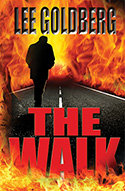

 I think it was Heywood Hale Broun who said, “When a professional man is doing the best work of his life, he will be reading only detective novels,” or words similar. I hope, even at my age, I have my best work ahead of me, but when I was writing
I think it was Heywood Hale Broun who said, “When a professional man is doing the best work of his life, he will be reading only detective novels,” or words similar. I hope, even at my age, I have my best work ahead of me, but when I was writing 

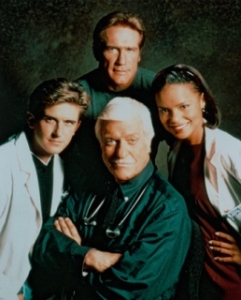 I just learned that Ernest Kinoy. one of the most honored writers in TV history,
I just learned that Ernest Kinoy. one of the most honored writers in TV history, 



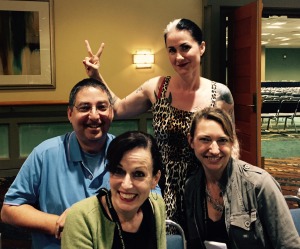

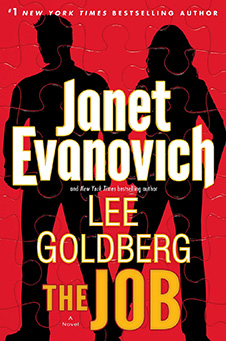
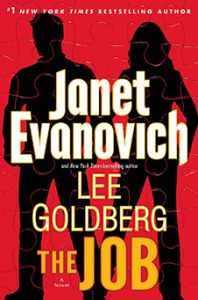 I’m so excited! It’s pub day for THE JOB, the third book in the Fox & O’Hare series that I co-write with Janet Evanovich. The book is available in the U.S., U.K., Canada and Australia…and if you want to get signed editions, autographed by me and Janet,
I’m so excited! It’s pub day for THE JOB, the third book in the Fox & O’Hare series that I co-write with Janet Evanovich. The book is available in the U.S., U.K., Canada and Australia…and if you want to get signed editions, autographed by me and Janet,